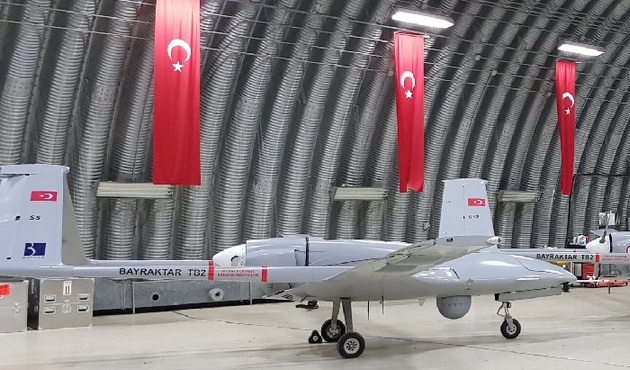Twenty-seven United States Congress members have voiced concern and alarm over Turkey’s unmanned aerial vehicles (UAVs) in a letter sent to Secretary of State Antony Blinken. The members allege that Turkey’s UAVs “destabilized multiple regions of the globe and threatens U.S. interests, allies and partners,” Daily Sabah reports.
Saying that Turkish drones have been deployed in Azerbaijan, Syria and Libya, the members added, “Turkey has entered into agreements to sell drones to Poland and Pakistan and is discussing the joint production of armed UAVs and anti-drone defense systems with Russia and Pakistan.” Authorities in Turkey say the country has become the world’s fourth-largest drone producer since Ankara took the helm for domestic production to reduce reliance on Western arms.
Turkish drones have gained popularity since the hardware was successfully deployed in Syria, Libya and Azerbaijan during conflicts that were prominently covered around the world. The UAVs are currently in active use in Turkey, Qatar, Libya, Ukraine and Azerbaijan. Turkey has gained remarkable experience in recent years while it was fighting the PKK terrorist group within its borders, which Ankara is expanding through neighboring Iraq and Syria via cross-border counterterrorism operations.
Furthermore, Turkish drone magnate Baykar is in the contract phase with about 10 countries, the company’s Chief Technology Officer (CTO) Selçuk Bayraktar said last week. Poland has also signed a contract for the purchase of Bayraktar TB2s, becoming the first NATO member country to acquire Turkish drones. Another U.S. ally and NATO member, Latvia later hinted that it could be the second European Union and NATO member state to acquire the Turkish unmanned combat aerial vehicles (UCAVs) that have had high-profile successes in the field.
The members further criticized Turkey's purchase of the Russian S-400 defense systems. Ties between NATO allies Turkey and the U.S. were badly strained in 2019 over Ankara’s acquisition of the advanced S-400 air defense system, prompting Washington to remove Turkey from its F-35 Lightning II jet program. The U.S. argued that the system was incompatible with NATO systems and could be used by Russia to covertly obtain classified information on the F-35 jets. Turkey, however, insists that the S-400 would not be integrated into NATO systems and would not pose a threat to the alliance. Last December, the U.S. decided to impose sanctions on Turkey over the purchase of Russian-made missile defense systems.






